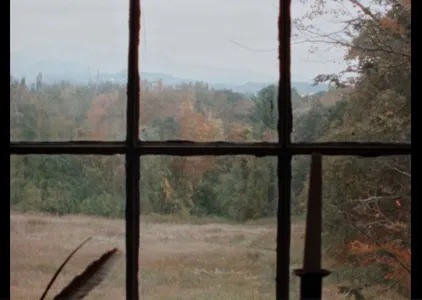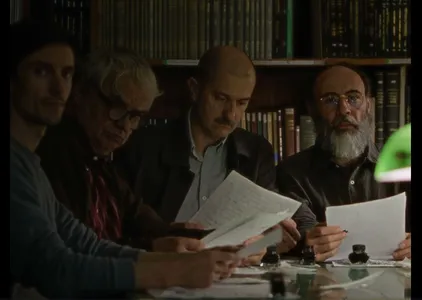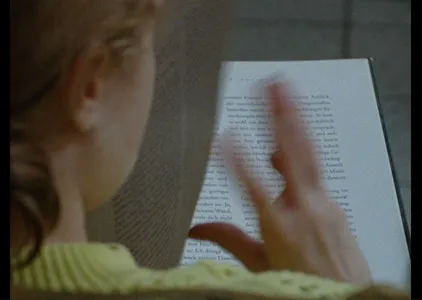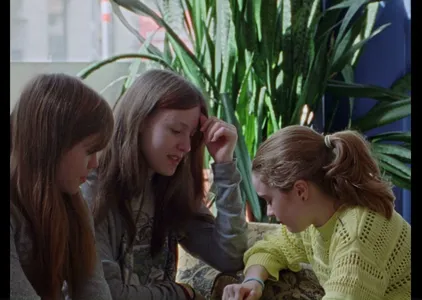B for Bartleby
B for Bartleby draws on Herman Melville's legendary narrative and transforms it into a film essay about remembrance, language, and resistance. Based on dialogues with a deceased companion, the famous phrase I would prefer not to is revived through the voices and gestures of performers, young people, rap musicians, passersby, and stranded individuals – quietly, persistently, timelessly.
Herman Melville’s famous short story Bartleby, the Scrivener: A Story of Wall Street, published in 1853 is at the starting point of Angela Summereder’s most recent film. Melville’s protagonist is a clerk at a law firm whose job consists of repetitively copying documents. His notorious line “I would prefer not to,” with which he brushes aside the work assigned to him with a polite, relentless stoicism, as we are told by the lawyer, the first-person narrator, runs like a common thread through Summereder’s essayistic montage.
The line connects, for one, sequences from Jean-Marie Straub’s and Danièle Huillet’s History Lessons (1972) with initially image-less, voice-over dialogues between Benedikt Zulauf, who played the young man in the Brecht adaptation, and the filmmaker, who explains, that with the realization of Bartleby, she is fulfilling a long held wish of her ex-partner, who was terminally ill before the start of production. It is the “double negation” of the Bartlebyesque statement that has accompanied Zulauf throughout his life, as he confesses, and which Summereder has diverse performers practice. In their programatically repetitive speaking and singing exercises, the common thread is then spun further: by a tour guide at the Herman Melville Museum who is reenacting Hermann’s wife Elizabeth Melville; by women and men of different ages, for example, at the Austrian Museum of Folk Life and Folk Art and at Ikea; by two young immigrant rappers in the sound studio; and finally, by school children in a so-called “come2gether” facility and residents at VinziDorf, a Viennese homeless shelter who all interpret the text fragments assigned to them in more less improvised monologues, dialogues, or polylogues.
Inasmuch as “essay” means roughly, “rehearsal” in Spanish, the cinematic form of B for Bartleby proves to be a visual and audible reflection on the interrelation between mimetic retelling and performative appropriation of literary material, which Summereder’s interactive method updates in a way that is poetically and also politically legible.
Info
- A, 2025, 72 min, 16 mm, DCP
- Script and Director
- DOP
- Editor
- Music
- Grading
- Producer
- Production
- With
Festivals
- DocLisboa (World Premiere) 2025
- Viennale (AT Premiere) 2025
Theatrical release AT
- 9th of January 2026
Distribution
Reviews
The rigour of the film, its formal excellence, its liberating originality and at the same time faithfulness to certain cinematic tradition, immediately conquered the attention and trust of our selection committee. This is the film which constantly changes the perspective, bringing the key literary text to the personal dimension, the dimension of the city and the community, which allows it to be a very singular work of art and at the same time an universal reflection on the society, work and politics.
By taking on Bartleby, the Scrivener: A Story of Wall Street by Herman Melville as the inspiration for a film, B WIE BARTLEBY reflects on the impossibility of translating written language into images and sounds. Melville-themed tours at the author’s property, actors impersonating a fictional Bartleby and performers rehearsing the text make up Angela Summereder’s catalogue of ‘adaptation’ styles, with the purpose of carrying out her late partner’s wishes— Benedikt Zulauf, who acted in Straub-Huillet’s GESCHICHTSUNTERRICHT (1972), worked as a librarian and long dreamed of making a film out of the story. As we witness the couple’s discussions about the project, we become involved in Summereder’s struggles and hesitations, a rare trait in the often solemn genre of the essay film, that offers a welcome injection of emotion into an approach otherwise predominantly textual. The urgent energy of Melville’s text as well as the film’s attempts to grasp it finally dissipates over a serene evening at the Austrian Film Museum, where Zulauf worked amid books and films. It’s a fitting conclusion for a film that is at heart a celebration of cinema and literature as a means to engage with our loved ones and the world at large.





